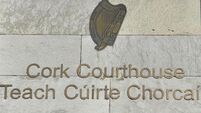'Sometimes conspiracies can happen': UCC study examines critical thinking about conspiracy theories

An experimental study by University College Cork (UCC) researchers has found that fostering critical thinking can be an effective method to reduce people’s tendency to believe in conspiracy theories.







 App?
App?


